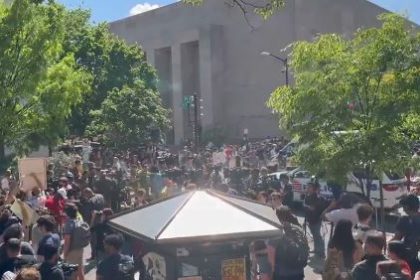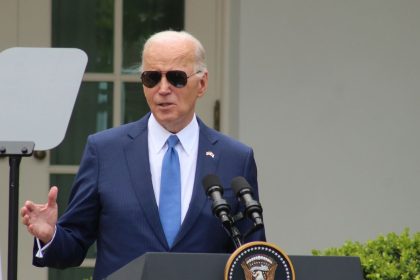Supreme Court Allows Ruling That Protects Homeless Who Sleep on Sidewalk to Stand

WASHINGTON — The Supreme Court refused Monday to hear a major case on homeless, letting stand a ruling that protects their right to sleep on the sidewalk or in public parks if no other shelter is available.
The justices without comment or a dissent said that they would not hear the case from Boise, Idaho, which challenged a ruling by a federal appeals court.
The outcome is a significant victory for homeless activists and a setback for city officials in California and other western states who argued the appeals court ruling undercut their authority to regulate encampments on the sidewalks.
Lawyers for the homeless had argued it was cruel and wrong to punish people who have nowhere else to sleep at night. They won a major victory last year when the 9th Circuit Court of Appeals ruled that prosecuting people for sleeping on the sidewalks violated the 8th Amendment’s ban on “cruel and unusual” punishment.
The appeals court ruling extended to California and eight other Western states, and said a city ordinance “violates the 8th Amendment insofar as it imposes criminal sanctions against homeless individuals for sleeping outdoors on public property, when no alternative shelter is available to them.”
The legal case has arisen a a decade before when Robert Martin and several other homeless people were given tickets or fines of between $25 and $75 for camping on the sidewalk. They then joined a lawsuit that challenged the punishments as unconstitutional.
A large group of West Coast cities including Los Angeles had urged the Supreme Court to hear the appeal in City of Boise vs. Martin.
They said the “creation of a de facto constitutional right to live on sidewalks and in parks will cripple the ability of more than 1,600 municipalities in the 9th Circuit to maintain the health and safety of their communities,” wrote lawyers for Boise.
“Nothing in the Constitution … requires cities to surrender their streets, sidewalks, parks, riverbeds, and other public areas to vast encampments.” The appeal was filed by Theane Evangelis and Ted Olson, partners at Gibson Dunn in Los Angeles.
A right to sleep on the sidewalk is not new for Los Angeles or city officials. In 2006, the 9th Circuit handed down a similar ruling that said the city may not enforce laws against sleeping in public places. Rather than appeal, the city negotiated a settlement with lawyers for the homeless in which it agreed to not enforce such laws from 9 p.m. to 6 a.m.
The Boise case began a decade ago when Robert Martin and five other homeless individuals were given fines of $25 to $75 for camping on the sidewalks or in the parks. They joined a lawsuit alleging this punishment was unconstitutional.
The 9th Circuit agreed last year and ruled the city may not enforce ordinances that “criminalize the simple act of sleeping outside on public property.”
The Supreme Court has previously relied on the 8th Amendment to limit the punishment for some crimes, but it is rare for judges to strike down a criminal law itself as cruel and unusual punishment. The 9th Circuit cited a 1962 decision in Robinson vs. California which struck down part of a state law that “made the status of narcotic addiction a criminal offense.”
Judge Marsha Berzon said this principle extends to homelessness. “Just as the state may not criminalize the state of being homeless in public places,” she wrote, “the state may not criminalize conduct that is an unavoidable consequence of being homeless—namely sitting, lying or sleeping on the streets.”
Los Angeles City Attorney Michael Feuer had urged the court to hear the Boise case and review the 9th Circuit’s opinion. “The lack of clarity of the Boise decision, combined with its sweeping rationale, makes more difficult the efforts of Los Angeles to balance the needs of its homeless residents with the needs of everyone who uses our public spaces,” he said.
He questioned whether the city must have shelter available for all 36,000 homeless people “before taking enforcement action against a single unsheltered individual who refuses an available shelter bed in one of the city’s regional shelters, just because shelters at the opposite end of the city are full.”
———
©2019 Los Angeles Times
Visit the Los Angeles Times at www.latimes.com
Distributed by Tribune Content Agency, LLC.























